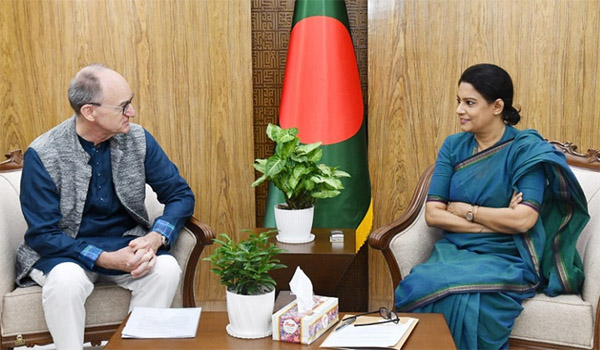In recent years, Bangladesh has witnessed a profound digital revolution in the financial sector, driven by the rise of fintech (financial technology) and digital banking. These technological innovations have brought about a sea change in the way people manage their personal finances, conduct business transactions, pay bills, and access various banking services. Prior to this digital shift, a significant portion of the population, especially in rural areas, remained excluded from the formal banking system due to a lack of accessibility, high transaction fees, and complex procedures. The advent of fintech services, however, has revolutionized the entire economic landscape of Bangladesh, providing greater financial inclusion, ease of access, convenience, and efficiency.
Fintech companies in Bangladesh, through mobile financial services, digital wallets, and payment gateways, have bridged the gap between the unbanked population and the formal banking sector, making it easier for individuals to manage their money without the need for physical branches or lengthy processes. From rural farmers being able to receive payments seamlessly to small and medium enterprises (SMEs) accessing much-needed microloans, fintech has opened up opportunities for a broader segment of the population to participate in the economy.
This detailed report will delve into various facets of the fintech revolution in Bangladesh. We will explore the rise and evolution of fintech companies, their profound impact on the daily lives of ordinary people, and how they have reshaped the financial ecosystem. Additionally, we will examine the role of the Bangladesh government in supporting this digital transformation through favorable policies and initiatives, as well as the various challenges that fintech faces in terms of cybersecurity, digital literacy, and infrastructure limitations. Finally, we will look into the future potential of digital banking in Bangladesh, considering technological advancements such as artificial intelligence, blockchain, and machine learning, and their implications for the continued growth of fintech and its impact on the national economy.
As Bangladesh moves toward its goal of becoming a digital economy under the government’s “Digital Bangladesh” vision, fintech is poised to play an even more significant role in fostering sustainable growth, empowering businesses, and transforming the lives of ordinary citizens. However, for this progress to be sustained and scaled, a number of key issues must be addressed, including ensuring robust regulatory frameworks, advancing digital literacy programs, improving cybersecurity protocols, and expanding access to high-speed internet and mobile technology across all regions of the country.
The growth of fintech in Bangladesh can be traced back to the launch of mobile banking services, with the most notable pioneer being bKash, which was launched in 2011. bKash, and later competitors such as Nagad and Rocket, made it possible for people in both urban and rural areas to perform basic banking activities through their mobile phones without the need for traditional bank accounts.
The rapid rise of mobile financial services (MFS) has since expanded to include a wide range of fintech services, including digital wallets, online payments, and digital lending platforms. For example, digital wallets like iPay and Upay allow users to store money, transfer funds, and pay for goods and services online. These services have brought about an unprecedented level of convenience for everyday consumers, making it easier for them to manage their financial needs without stepping into a bank.
Fintech has also been instrumental in helping small and medium-sized enterprises (SMEs) gain access to credit through digital lending platforms, which use AI and blockchain technology to assess creditworthiness and provide quick loans.
Fintech services have made a profound impact on the daily lives of Bangladeshis, transforming the way people handle money and conduct business. Here are some key areas where fintech has significantly changed everyday life:
1. Financial Inclusion and Access to Banking
One of the most transformative aspects of fintech in Bangladesh is its ability to increase financial inclusion. A large percentage of Bangladesh’s population, particularly those in rural areas, were historically excluded from formal banking systems due to limited access to bank branches, literacy issues, and high transaction costs. Through mobile banking platforms like bKash and Nagad, millions of unbanked people can now access financial services, such as sending and receiving money, paying utility bills, and saving money securely.
This digital access to banking has empowered people, especially in rural communities, allowing them to participate more fully in the economy. Women entrepreneurs and small-scale farmers have particularly benefited from digital banking services, gaining the ability to access financial resources that were previously beyond their reach.
2. Ease and Transparency in Financial Transactions
Fintech has also introduced a level of transparency and convenience that was previously absent in traditional banking. Financial transactions, such as bill payments, fund transfers, and mobile top-ups, can now be completed within minutes from a smartphone, reducing the need for physical visits to bank branches. This ease of transaction has not only saved time but also reduced the potential for fraud and corruption in financial dealings, as every transaction leaves a digital trail.
With real-time notifications and easy access to financial history, users can better manage their funds and avoid unnecessary expenses. Furthermore, people can now easily send remittances, making it more convenient for families dependent on money from relatives working abroad.
3. Growth of Digital Credit and Microfinance
The fintech revolution has also led to the growth of digital lending platforms, which offer microloans to individuals and businesses. These platforms assess creditworthiness based on digital footprints, mobile usage patterns, and alternative data, allowing people without formal credit histories to access loans. This has been a game-changer for small businesses and startups looking for capital to expand their operations.
Microfinance institutions, long a staple of Bangladesh’s economy, are also leveraging fintech to disburse loans digitally, making the process faster, more efficient, and less prone to manual errors. Blockchain technology is increasingly being used to secure these transactions, reducing the risk of fraud.
4. Reduction in Transaction Costs
The digitalization of banking has led to a significant reduction in transaction costs, both for the banks and the customers. Digital payments reduce the need for physical branches and paperwork, streamlining operations. Customers benefit from lower fees, faster services, and the ability to conduct transactions 24/7 without having to adhere to the traditional banking hours.
5. Time and Labor Savings
One of the most noticeable benefits of digital banking is the substantial time and labor savings for both businesses and individuals. People no longer need to stand in long lines at banks or visit physical locations to conduct their financial transactions. Payments, transfers, and even loan applications can be handled through apps, saving both time and effort. This has allowed people to focus more on productive work rather than wasting time on manual financial processes.
The Role of the Government and Policy Framework
The government of Bangladesh has played a critical role in fostering the growth of fintech. Under its “Digital Bangladesh” initiative, the government has encouraged the widespread adoption of technology across various sectors, including finance. The Bangladesh Bank has introduced several regulatory guidelines to ensure the smooth and secure operation of mobile financial services. These regulations include anti-money laundering and cybersecurity protocols to protect users from fraud and ensure that fintech services operate within legal frameworks.
The government’s support for public-private partnerships in the fintech sector has been instrumental in driving innovation and scaling digital banking services. Partnerships between telecom operators, banks, and fintech companies have led to the creation of interoperable payment systems that allow users to conduct transactions across multiple platforms seamlessly.
Challenges Facing Fintech in Bangladesh
While fintech has seen remarkable growth in Bangladesh, several challenges still need to be addressed to ensure its continued success and sustainability:
1. Cybersecurity and Fraud Risks
As digital financial transactions increase, so does the risk of cyber-attacks and fraud. Many users are still unaware of best practices for online safety, making them vulnerable to phishing scams and identity theft. The Bangladesh Financial Intelligence Unit (BFIU) and other regulatory bodies must continue to tighten cybersecurity measures to safeguard digital banking systems.
2. Digital Literacy and Access to Technology
While smartphone penetration is growing, a significant portion of the population, particularly in rural areas, still lacks access to smartphones and the internet. Additionally, many people lack the digital literacy necessary to use fintech services effectively. Addressing this digital divide is critical to ensuring that fintech can reach its full potential and include all demographics.
3. Regulatory Hurdles and Compliance
As the fintech ecosystem continues to evolve, regulatory bodies must keep up with the rapid changes in technology. Ensuring compliance with international standards, while also providing room for innovation, will be essential for the long-term growth of fintech in Bangladesh.
Future of Fintech in Bangladesh
Despite the challenges, the future of fintech in Bangladesh looks promising. The country’s growing middle class, increasing smartphone adoption, and continued investment in digital infrastructure are likely to drive further innovation in the fintech sector. With more artificial intelligence (AI), blockchain, and machine learning being integrated into financial services, fintech companies will continue to develop more sophisticated and accessible solutions for the population.
The expansion of cashless payment systems, the rise of digital microfinance, and the growing demand for contactless services due to the COVID-19 pandemic are also expected to further accelerate the growth of fintech in the country.
The rise of fintech in Bangladesh has ushered in a new era of financial accessibility and inclusion, particularly for the unbanked and underbanked population. Through mobile banking, digital wallets, and online financial services, fintech has made banking more transparent, efficient, and convenient. As Bangladesh continues on its journey toward becoming a digitally inclusive economy, fintech will play a crucial role in transforming the financial landscape and improving the quality of life for millions of people.
However, for fintech to fully reach its potential, challenges such as cybersecurity, digital literacy, and regulatory frameworks must be addressed. The future of fintech in Bangladesh is bright, with immense opportunities for growth, innovation, and socioeconomic development.

 A.B.M. Abir
A.B.M. Abir 
























